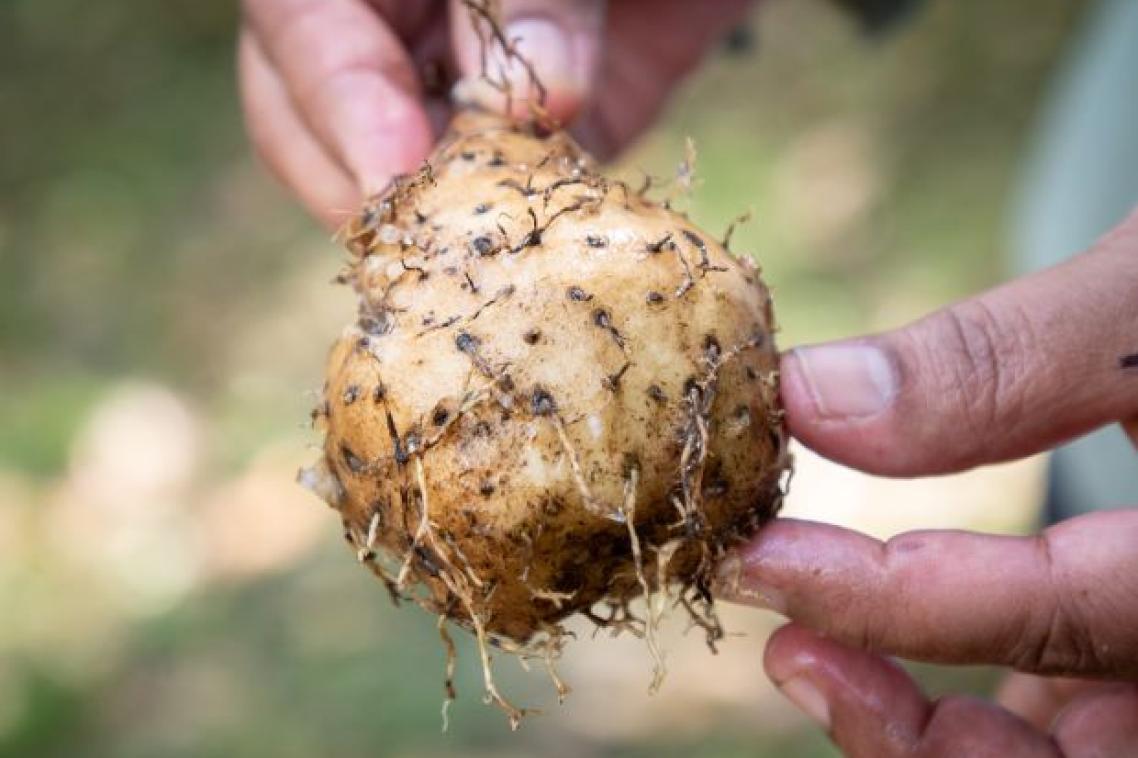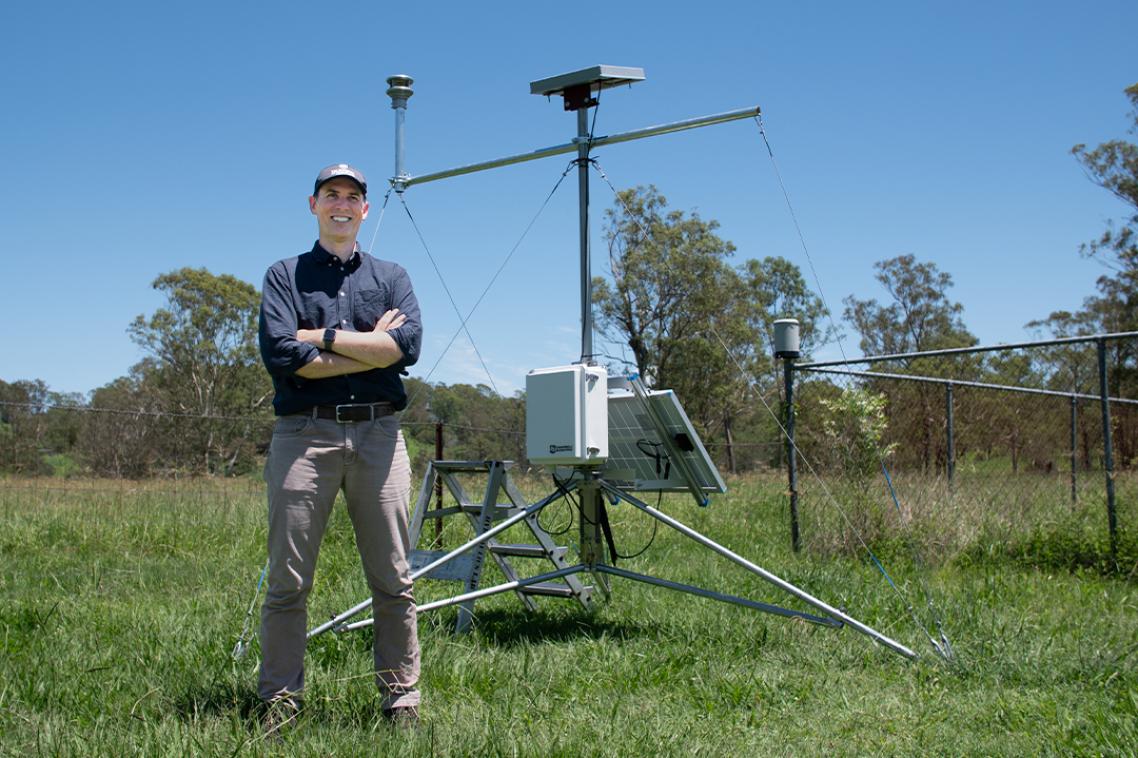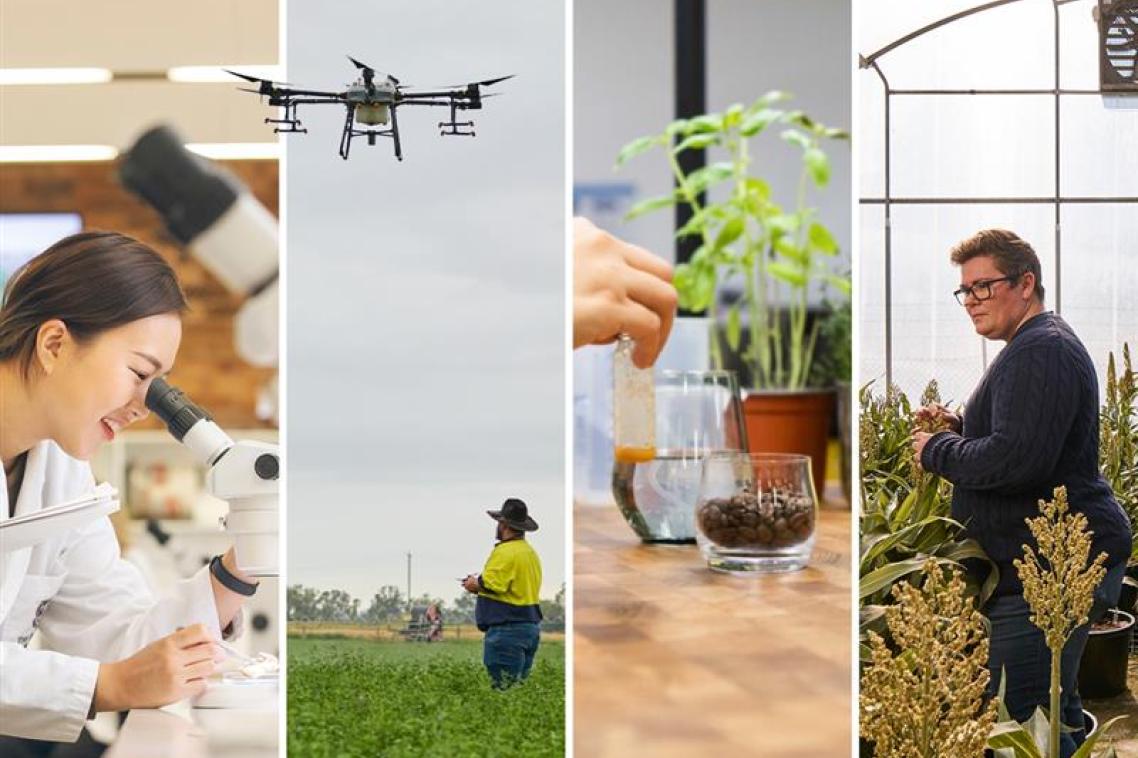Cooking up a future for Australian yams

Promoting the cultivation and use of a nutritious and tasty native plant tuber is the aim of a research project at The University of Queensland.
PhD candidate Fawale Samson Olumide is studying Australian yams, the edible roots of a climbing plant which were a vital food for Indigenous peoples in rainforests along the east coast.
Mr Olumide hopes to marry his knowledge of African yam species with what he can uncover about the Dioscorea species.
“Yams had been an important part of Aboriginal culture until the introduction of the western diet nearly eradicated a lot of native foods,” Mr Olumide said.
“My PhD with UQ’s ARC Discovery Indigenous project will bridge the gap between Indigenous knowledge and western science, so the world can see Australian native yams are worth growing and harvesting.
“We don’t want important traditional knowledge to be lost and at the moment there are no scientific reports about the nutritional and health benefits of this bush tucker staple.”
The Yidinji community in Far North Queensland is collaborating on the project, alongside community elder Professor Henrietta Marrie from the Queensland Alliance for Agriculture and Food Innovation.
“It’s very exciting to bring in PhD students like Mr Olumide to work specifically on traditional food and traditional management of the food stock that we have left,” Professor Marrie said.
“There is so much work we need to do to record Indigenous knowledge about the food and its use to pass on to our younger generations.”
Mr Olumide said yams were particularly interesting because of their likely health benefits.
“If they’re anything like African and Asian yams, the species found in Australia are likely to contain anti-diabetic properties, as well as unique bioactive compounds,” he said.
“Where I grew up in Nigeria for instance, people eat yams for the health benefits, so we will study the tuber, the plant’s leaves and the peel.”
Once the nutritional qualities of Australian yams are established, Mr Olumide will turn his attention to cultivation in partnership with Yidinji people.
“I am interested in ways to increase its abundance because right now yams are found mostly in the wild,” Mr Olumide said.
“I’m hoping my research will open new paths for Indigenous enterprise in yam production.
“I want to bring this bushfood into the limelight.
“These findings will determine the potential use of yams, particularly their introduction into the culinary scene as a uniquely Australian ingredient and food.”
Images and video are available via Dropbox.
Topics
Related articles

Hailstorm forecasting set to improve with new data gathering project

The changing landscape of agricultural and food education: why now is the time to jump in
Media contact
UQ Communications
communications@uq.edu.au
+61 429 056 139

